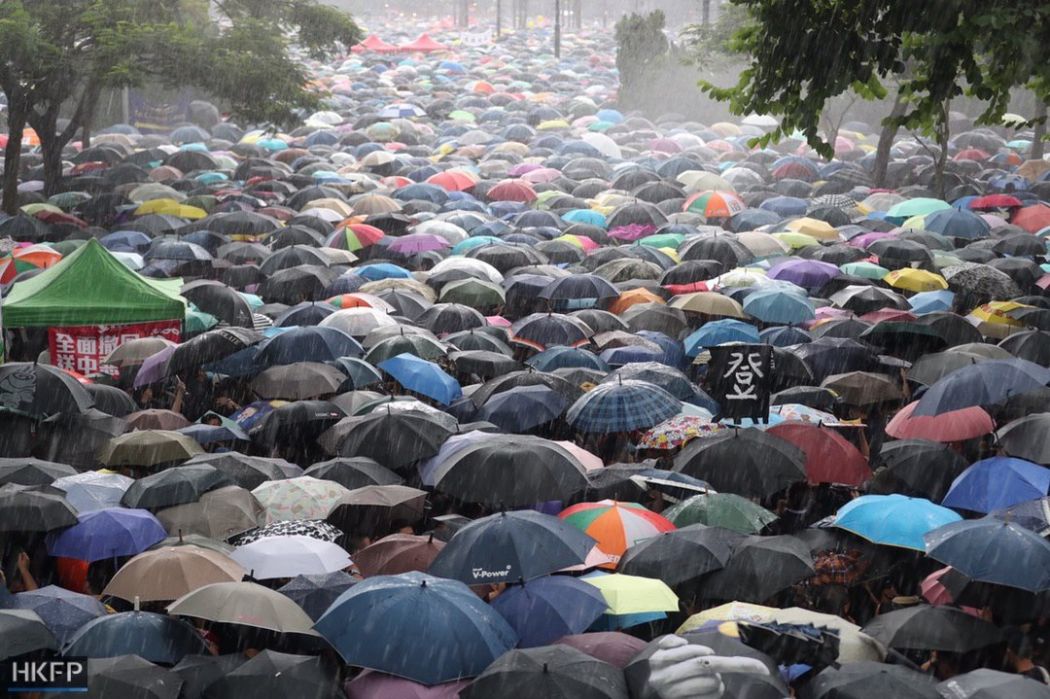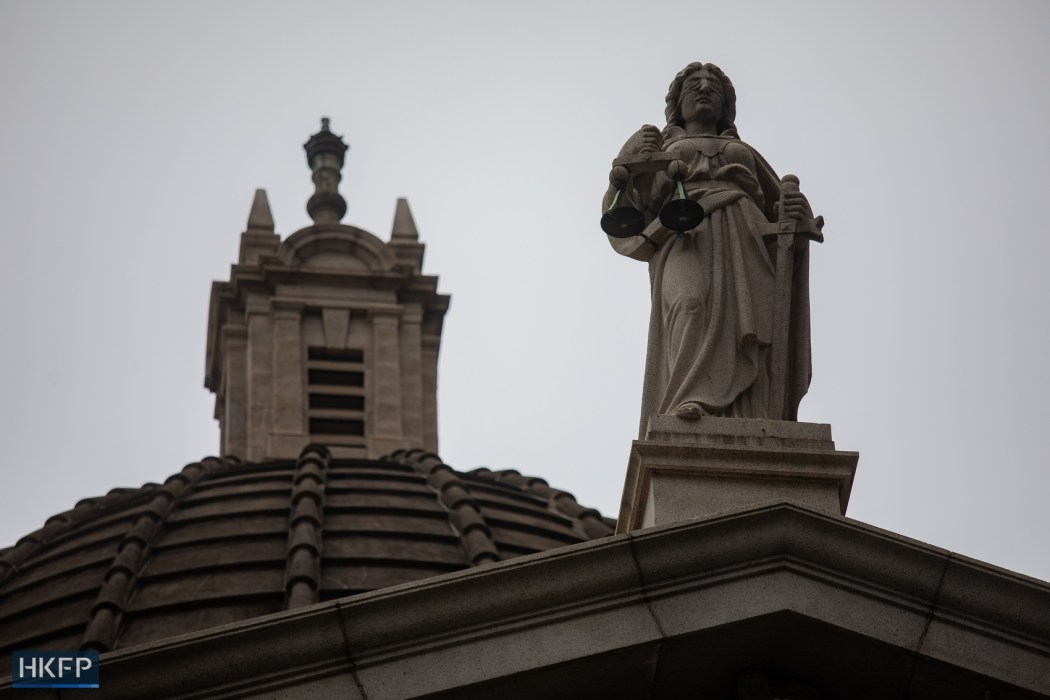Seven veteran democrats have launched a bid to appeal their convictions for taking part in an unauthorised assembly during the 2019 protests and unrest.
Veteran democrat Martin Lee and media tycoon Jimmy Lai, along with ex-lawmakers Lee Cheuk-yan, Margaret Ng, Leung Kwok-hung, Cyd Ho, and Albert Ho, were found guilty for knowingly participating in an unauthorised assembly after a trial in April 2021.

Legal representatives for some of the democrats hope to challenge their clients’ convictions on the basis that the maximum sentence of five years for participating in a “peaceful” and “nonviolent” unauthorised assembly constituted a “chilling effect.”
They contended that the police ban on the assembly itself was an excessive restriction of the fundamental rights of freedom of expression and assembly, thereby being unconstitutional.
Senior Counsel Audrey Eu acknowledged that the lower court had found the “water flow procession” to be a ruse intended to circumvent the assembly’s lack of police approval, but argued that a safe and orderly dispersal could “coexist.”
See also: Hong Kong’s top court rejects gov’t bid to appeal acquittal of 7 veteran democrats over 2019 protest
Eu argued that there was “never an invitation to defy the police ban,” and quoted Figo Chan, then-convener of the Civil Human Rights Front, the now-dissolved group that held the assembly, as saying: “if you can’t leave at Causeway Bay, leave at Wan Chai; if you can’t leave at Wan Chai, leave at Admiralty.”

Her client, former Apple Daily founder Lai, was only following instructions from the organiser to disperse, Eu said.
Chilling effects
Senior Counsel Hectar Pun, representing Leung, also made his submission on the chilling effect of the five-year sentence, which he said was higher than for more serious offences that involved violence. “Failure to notify must not be used as a basis for imposing undue sanctions [on demonstrations],” he argued, in reference to the police Letter of No Objection requirement.
Responding to Pun, lead judge Roberto Ribeiro said that, even though “it turned out there was no violence,” there were concerns that the assembly would spark conflict as “emotions were running high” during the 2019 protests and unrest.

Pun continued, saying that the procession was “entirely peaceful” and “nonviolent,” adding that Leung left the procession at 4:30 pm that afternoon.
Senior Counsel Robert Pang, representing Albert Ho and Martin Lee, submitted that the Court of Appeal had not adequately verified the facts accepted by the lower District Court. That, according to Pang’s submission, constituted a matter of substantial and grave injustice.
“Confidence of the public lies partly in the transparency of the whole of the process, not on the result alone,” Pang said. “That confidence has to be bolstered.”
Representing the Department of Justice, barrister Priscilia Lam argued, however, that the court should give the law a “wide margin of appreciation,” adding that the maximum penalty was reserved for the worst case scenario where “peaceful demonstration can turn into violent protest.”

She also cited the top court’s decision to reinstate former human rights lawyer Chow Hang-tung’s conviction over inciting participation in an unauthorised assembly, arguing that “prohibition without criminal sanction” would be “without teeth” and could potentially jeopardise national security.
The democrats were found guilty of both organising and knowingly participating in an unauthorised assembly after a trial in April 2021. They were given jail terms of up to 18 months while Martin Lee, Albert Ho, and Margaret Ng received suspended sentences.
But the Court of Appeal in August last year quashed their convictions over the organisation charge, saying at the time that standing in the front rows of a march did not amount to organising it. The appellate court upheld the participation charge, whilst the city’s top court – on Friday – upheld the acquittal over organising the demonstration.
Protests erupted in June 2019 over a since-axed extradition bill. They escalated into sometimes violent displays of dissent against police behaviour, amid calls for democracy and anger over Beijing’s encroachment. Demonstrators demanded an independent probe into police conduct, amnesty for those arrested and a halt to the characterisation of protests as “riots.”
Support HKFP | Policies & Ethics | Error/typo? | Contact Us | Newsletter | Transparency & Annual Report | Apps
Help safeguard press freedom & keep HKFP free for all readers by supporting our team

LATEST FROM HKFP
HKFP has an impartial stance, transparent funding, and balanced coverage guided by an Ethics Code and Corrections Policy.
Support press freedom & help us surpass 1,000 monthly Patrons: 100% independent, governed by an ethics code & not-for-profit.










